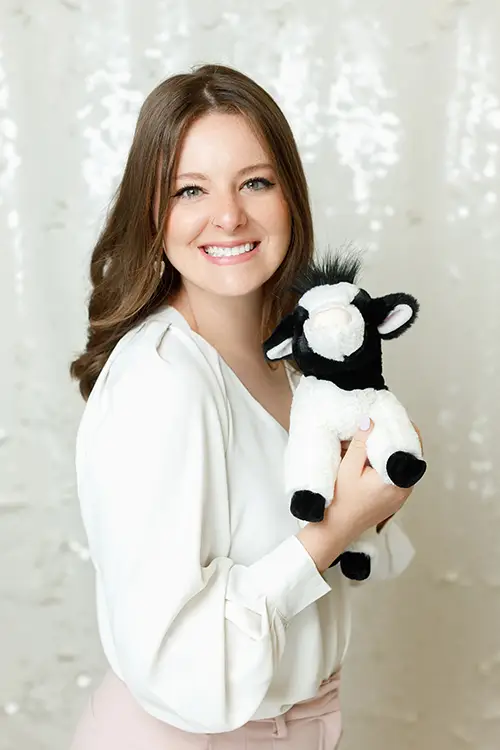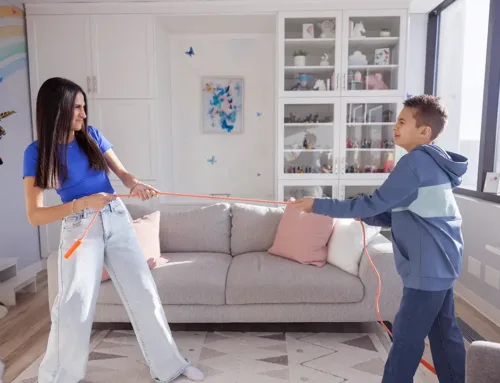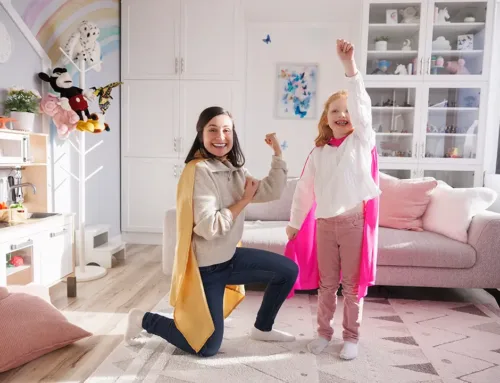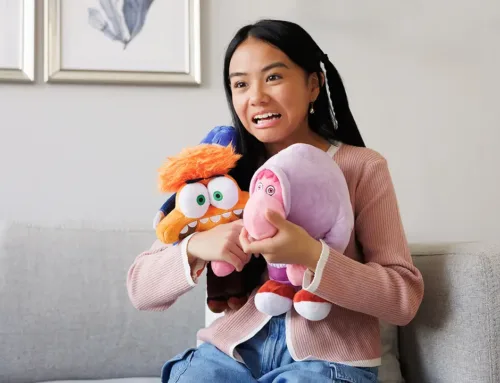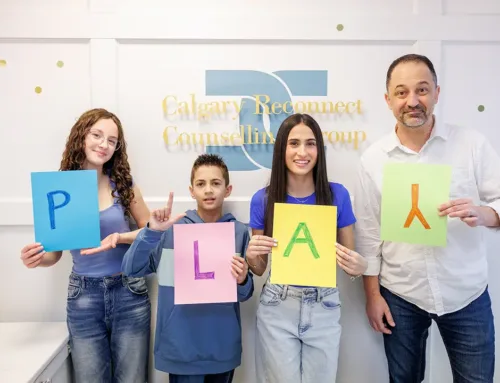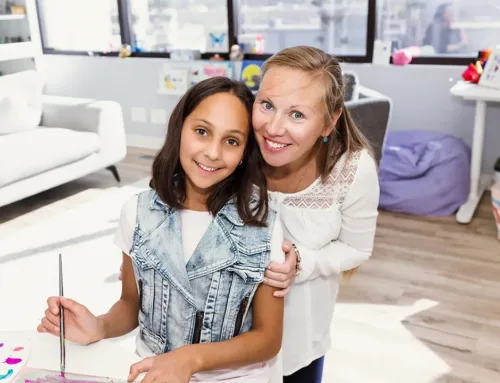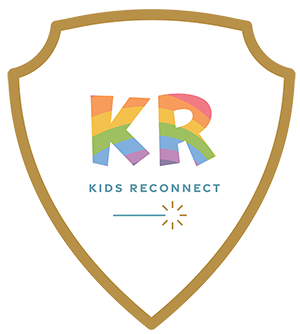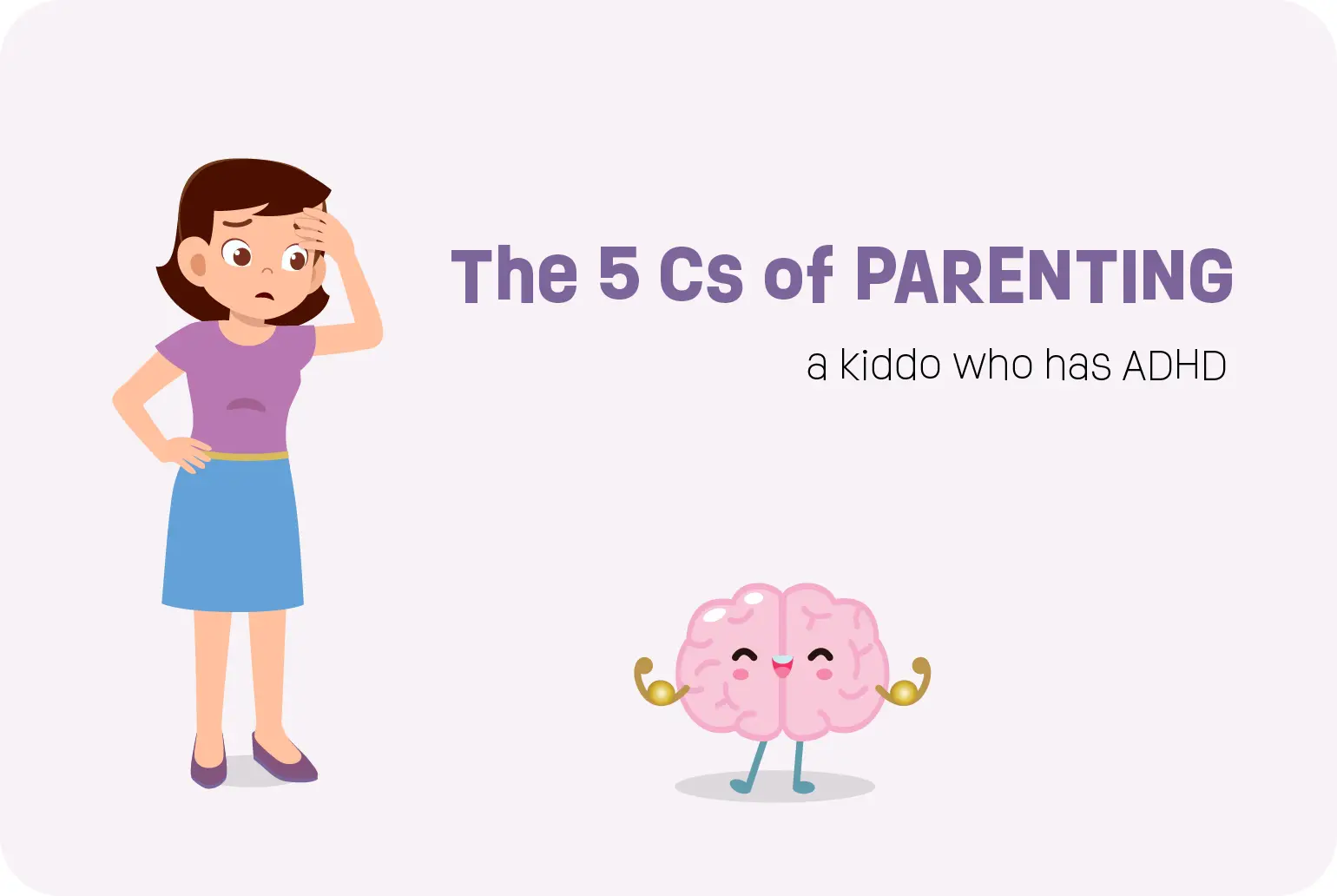
Here are 5 tips to help make parenting your child
who has ADHD easier and more fun
Parenting a kiddo who has neurodivergent skills takes a special set of parenting skills.
A child who has ADHD has some skills and struggles that are different from those of a neurotypical child.
Not better or worse — different.
First, a quick note on what ”neurodivergent” is (and what it is not).
What is “neurodivergent”? (Click to flip)
It means your brain is a little different.
The Australian sociologist Judy Singer coined the word “neurodiversity” in 1998 to recognize that everyone’s brain develops in a unique way.
Having a neurodivergent brain means your brain is different, not sick or defective.
1. Control. (SELF-control, that is).
Drawing from your own regulated state, your child can co-regulate with you. Your kiddo will move towards matching your energy, so they need you to model self-regulation.
Your child needs you to stay calm and cool as a cucumber so they can practice and learn how to get back to a chill state. Over and over again. Consistently.
Tips
- Pause before responding.
- Respond, don’t react by matching their energy.
- Reflect on your own triggers.
- Grow your coping skills by rehearsing them. Repeatedly playing out scenarios in your mind rebuilds your own neural pathways, developing your ability to consistently respond in a regulated way.
- Use whatever coping skills you have acess to in the moment.
AKA “Chill” (Click to flip)
Chill.
“Put on your own oxygen mask first.”2. Consistency
AKA “There is try.” (Click to flip)
Try.
“Try. Try. Try.”3. Collaboration.
A collaborative, constructive, positive approach is way more effective than a punitive one.
- “We” instead of “you” statements.
- Incentives, not punishments.
- Incentives teach that “have-to’s” come before “want-to’s.”
- Punishments do not teach skills.
Tip
Use the Premack Principle
The Premack Principle was identified by psychologist David Premack in 1965. It is also sometimes called the “Grandma Principle” (which makes sense, because Grandmas can be wise beyond belief).
According to this principle, a person will perform a less preferred activity (low probability behaviour, e.g., homework) to gain access to a more preferred activity (high probability behaviour, e.g., playing outside).
A high-probability behaviour for your child is something they would usually want to do without any prompting. Using this principle means teaching your child that they can earn access to a more preferred activity (their agenda) by pairing it with a less preferred one (your agenda).
AKA “Team”. (Click to flip)
“We.”
AKA “First - Then.” (Click to flip)
“First homework.
Then, after homework is done, you can play outside.”4. Compassion.
- Do not compare yourself to parents of neurotypical or neurodiverse kids. Comparison to others serves no one.
- Have compassion for yourself and for your child. Remember, you and your child are doing your best to manage.
Tip
Use Reflective Listening
When your child shares their concerns, repeat back what they said to you and ask if you have fully understood. This helps your kid feel heard and understood, and it helps you both to connect more closely with each other.
AKA “Human.” (Click to flip)
”Compassion is a relationship between equals.
Compassion becomes real when we recognize our shared humanity.”—Brené Brown
5. Celebration.
A child’s sense of self is compromised when their behaviour is constantly criticized.
Unfortunately, it happens more often than you might suspect.
Researchers estimate that a child with ADHD receives 20,000 more corrective or negative messages by age ten than a child without ADHD. That’s 5.5 harsh messages a day.
The good news? You can override those with constant celebration!
Tips
- Flip the script.
Shift your focus to celebrating everything that is working instead of bringing up what is not.
- Tip the scales.
Celebrate constantly. Acknowledge, validate, and celebrate your child’s successes often— at least 3 times more often than you point out what isn’t working. Aim for 15+ happy celebration messages a day.
By the way…
This works for adults, too.
In a couples relationship context, Dr. John Gottman found that stable relationships have a 5:1 ratio of positivity to negativity during conflict.
AKA “Progress, not Perfection.” (Click to flip)
Celebrate!
“Celebrate good times, come on.”—Kool & the Gang
References
Meet the friendly authors
